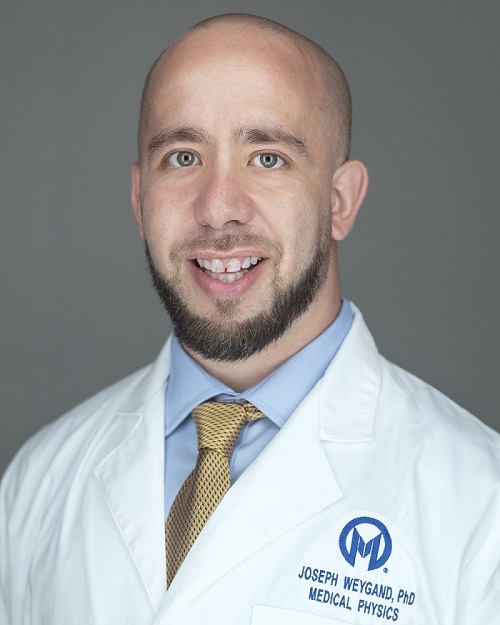ARTT GRAPPA for Accelerating Magnetic Resonance Spectroscopic Imaging
J Weygand1,2*, V Franke1, M Ladd1, P Bachert1, A Korzowski1, (1) German Cancer Research Center, Heidelberg, Germany, (2) Moffitt Cancer Center, Tampa, FL
Presentations
WE-A-201-2 (Wednesday, 7/13/2022) 7:30 AM - 8:30 AM [Eastern Time (GMT-4)]
Room 201
Purpose: Magnetic resonance spectroscopic imaging (MRSI) can noninvasively interrogate metabolism in vivo. However, its adoption into routine clinical practice has been prevented by long acquisition durations. Generalized autocalibrating partially parallel acquisitions (GRAPPA) is a parallel imaging technique that allows one to reduce acquisition duration and uses spatial correlations to reconstruct the unsampled data points in k-space. The GRAPPA algorithm has previously been applied to accelerate MRSI, but this approach does not exploit the spatiotemporal correlations present in MRSI data. In this work, a novel algorithm is presented called Autocalibration Region extending Through Time (ARTT) GRAPPA. This technique exploits these spatiotemporal correlations which ultimately allows for a more accurate reconstruction, and this accuracy can then be traded for more aggressive undersampling and a greater reduction in acquisition duration.
Methods: The ARTT GRAPPA algorithm performs the parallel imaging reconstruction in k-t space and uses the GRAPPA operator approach to extend the dimensionality of the reconstruction. As a proof of concept, a fully sampled 1H MRSI in vivo dataset was acquired on a 7 T scanner, metabolite concentrations were quantified using LCModel, and these concentrations were taken to be ground truth. Retrospective undersampling was performed using a number of sampling patterns using both ARTT GRAPPA and the conventional technique. Reconstructed metabolite concentrations were then compared to the ground truth concentrations to assess reconstruction accuracy.
Results: While still maintaining a reconstruction accuracy of greater than 90%, ARTT GRAPPA allows for the scan time to be reduced by a factor of 3.58. For a fixed level of reconstruction accuracy, one can accelerate more than two-fold more aggressively using ARTT GRAPPA compared to the conventional technique.
Conclusion: ARTT GRAPPA allows for an effective scan time acceleration of greater than 3.5. This greatly enhances the clinical feasibility of high-resolution metabolic imaging using MRSI techniques.
Keywords
Not Applicable / None Entered.
Taxonomy
Not Applicable / None Entered.
Contact Email



